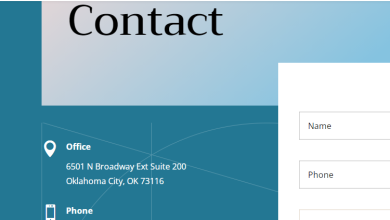
sHave you been experiencing relentless phone calls, threatening letters, or aggressive actions from creditors? If so, you’re not alone. Many individuals find themselves facing the distressing and overwhelming situation of creditor harassment. However, there is a solution to put an end to this distress: hiring a creditor harassment attorney. In this article, we will delve into the role of a creditor harassment attorney and how they can help protect your rights and financial well-being.
Understanding Creditor Harassment
Creditor harassment refers to the persistent and aggressive actions taken by creditors or debt collectors to collect outstanding debts. These actions can include incessant phone calls, threats, abusive language, public humiliation, or disclosing personal information to third parties. Creditor harassment can cause immense emotional distress and negatively impact your financial well-being.
The Importance of a Creditor Harassment Attorney
When faced with creditor harassment, seeking the assistance of a qualified creditor harassment attorney is crucial. A skilled attorney specializing in this area of law can provide you with the legal expertise and guidance needed to protect your rights and navigate through the complexities of debt collection practices.
Assessing Your Rights as a Debtor
As a debtor, you have certain rights protected by law. Understanding these rights is essential when dealing with creditor harassment. A reputable creditor harassment attorney will assess your situation, educate you about your rights, and empower you to take appropriate action.
How a Creditor Harassment Attorney Can Help
A competent creditor harassment attorney will work diligently to protect your rights and financial well-being. They will analyze your case, communicate with creditors on your behalf, and develop a customized strategy to address the harassment. Their goal is to negotiate a fair resolution or pursue legal action when necessary.
Evaluating Your Financial Options
In addition to addressing creditor harassment, a skilled attorney will also evaluate your financial situation holistically. They will assess your debts, income, and assets to determine the most suitable course of action. This may involve exploring debt consolidation, negotiating settlements, or guiding you through bankruptcy proceedings if needed.
Filing Lawsuits and Pursuing Legal Action
When negotiations fail or creditor harassment persists, your attorney may recommend filing a lawsuit against the offending creditors. A creditor harassment attorney will have the expertise to initiate legal proceedings, gather evidence, and represent you in court. Their goal is to hold the creditors accountable for their unlawful actions and seek compensation for damages, if applicable.
Negotiating with Creditors
One of the primary responsibilities of a creditor harassment attorney is to negotiate with creditors on your behalf. Through skillful communication and legal expertise, they can often reach favorable settlements, reduce the amount of debt owed, or establish manageable payment plans. This can help alleviate the financial burden caused by creditor harassment.
Protecting Your Assets
Creditor harassment can pose a threat to your assets and financial stability. A creditors harassment attorney will explore legal avenues to protect your assets, such as filing for exemptions or preventing aggressive collection actions. They will strive to safeguard your property and ensure that you can maintain a stable financial footing.
Rebuilding Your Financial Life
Dealing with creditor harassment can be emotionally and financially draining. A competent attorney will not only address the immediate issues but also assist you in rebuilding your financial life. They can provide guidance on budgeting, credit repair, and establishing healthy financial habits to help you regain control over your financial future.
Common Myths About Creditor Harassment Attorneys
There are several misconceptions surrounding creditor harassment attorneys. Let’s debunk some common myths:
Hiring an attorney will make matters worse.
On the contrary, a skilled attorney will protect your interests and ensure that creditors adhere to the law. They will handle communications on your behalf, minimizing the stress and harassment you face.
Creditor harassment attorneys are too expensive.
Many creditor harassment attorneys offer flexible fee structures, including contingency-based arrangements. This means they only receive payment if they successfully resolve your case, making their services more accessible.
I can handle creditor harassment on my own.
While it’s possible to address creditor harassment independently, having a knowledgeable attorney by your side can significantly increase your chances of achieving a favorable outcome. They have the experience and expertise to navigate the legal complexities effectively.
Factors to Consider When Choosing an Attorney
Selecting the right creditor harassments attorney is crucial for a successful outcome. Here are some factors to consider:
- Experience in creditor harassment cases
- Reputation and client testimonials
- Communication style and responsiveness
- Fees and payment structure
- Compatibility and trust
Tips for Dealing with Creditor Harassment
While awaiting the assistance of a creditor harassments attorney, there are steps you can take to mitigate the impact of harassment:
- Keep detailed records of all interactions with creditors
- Request written communication whenever possible
- Cease communication with aggressive creditors
- Know your rights and inform creditors about them
- Seek legal advice before making any payments
Understanding Your Rights under the Fair Debt Collection Practices Act (FDCPA)
The Fair Debt Collection Practices Act (FDCPA) is a federal law that protects consumers from abusive and unfair debt collection practices. It sets standards for creditor conduct and provides avenues for legal recourse if these standards are violated. Understanding your rights under the FDCPA is crucial in combating creditor harassment.
Steps to Take if You Encounter Creditor Harassment
If you find yourself subjected to creditor harassment, follow these steps:
- Document all instances of harassment.
- Request written communication.
- Familiarize yourself with the FDCPA.
- Contact a reputable creditor harassments attorney.
- Seek legal advice before taking any action.
FAQs (Frequently Asked Questions)
Q: How much does it cost to hire a creditor harassment attorney?
A: The cost of hiring a creditor harassment attorney varies depending on factors such as the complexity of your case and the attorney’s fee structure. Many attorneys offer free initial consultations and flexible payment options to accommodate clients’ financial situations.
Q: Can a creditor harassment attorney stop the harassing phone calls immediately?
A: While an attorney cannot guarantee an immediate end to creditor harassment, they can take swift legal action to protect your rights and pursue a resolution. Once you hire an attorney, they will communicate with creditors on your behalf, reducing the frequency and intensity of the harassing calls.
Q: Will hiring a creditor harassment attorney affect my credit score?
A: Hiring a creditor harassment attorney itself does not directly impact your credit score. However, resolving your debt issues through legal means, such as debt consolidation or bankruptcy, may have an impact on your credit score. Your attorney will guide you on the best course of action based on your specific circumstances.
Q: Can I handle creditor harassment on my own without hiring an attorney?
A: While it is possible to address creditor harassment independently, having an experienced attorney by your side significantly increases your chances of success. They have the legal knowledge and negotiation skills to protect your rights effectively and achieve the best possible outcome.
Q: How long does it take to resolve a creditor harassment case?
A: The duration of a creditor harassment case varies depending on its complexity and the actions of the involved parties. Some cases can be resolved through negotiation and settlement, while others may require litigation. Your attorney will provide you with an estimated timeline based on the specifics of your case.
Conclusion
Creditor harassment can be a distressing and overwhelming experience, but you don’t have to face it alone. By enlisting the help of a knowledgeable creditor harassment attorney, you can protect your rights, put an end to the harassment, and regain control over your financial well-being. Remember, taking timely action is crucial in combating creditor harassment and securing a brighter financial future.




